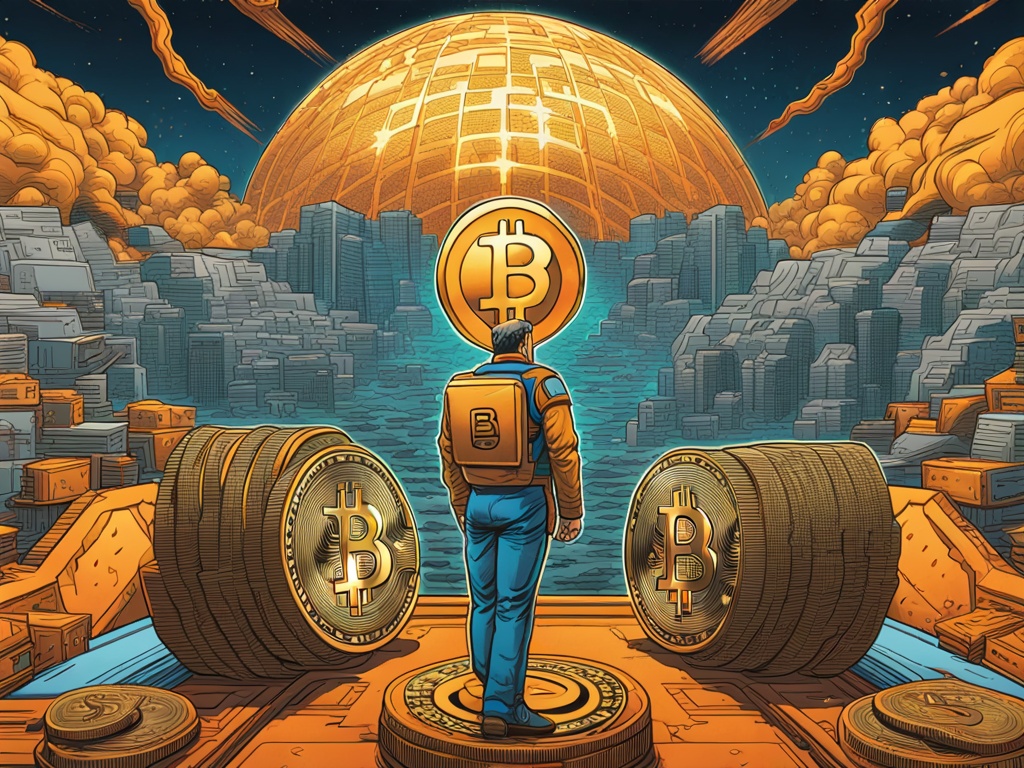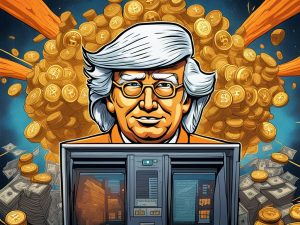Is Russia Poised to Lead the Way with a Bitcoin Reserve?
You know, as a young Korean American analyst in the crypto space, it’s wild to see how traditional financial systems are starting to embrace digital currencies. Recently, a significant development has come out of Russia that could ripple through the entire crypto market, and trust me, it’s something worth paying attention to. Let’s break this down!
Key Takeaways:
- Russia may establish a Strategic Bitcoin Reserve (SBR).
- This proposal seeks to counter the risks associated with traditional currency reserves.
- Bitcoin’s performance shows potential benefits in terms of returns compared to less stable currencies.
- Other nations are also considering similar strategies, indicating growing global interest in Bitcoin as a financial asset.
So, what’s going on? A Russian politician named Anton Tkachev recently proposed the establishment of a Strategic Bitcoin Reserve. This isn’t just some random thought; it’s a legit appeal to the government to start diversifying its reserves beyond traditional currencies like the dollar, euro, and even the yuan. The idea is to stabilize their financial situation amid ongoing geopolitical tensions and sanctions. And let me tell you, in today’s climate, that’s a pretty sharp move.
The Vulnerabilities of Traditional Reserves
Tkachev’s argument hits home when you think about how fragile traditional currencies can be. With sanctions and inflation threatening financial stability—especially for countries like Russia—it makes sense that an alternative asset like Bitcoin could come into play. Imagine relying on reserves that can get devalued or are restricted at the drop of a hat! That’s no fun for any economy.
But here’s where it gets more interesting: by integrating Bitcoin into their reserves, Russia could potentially use it for international trade, even when traditional financial systems are off-limits due to sanctions. Now that’s a game changer. Not to mention, Bitcoin’s track record of growth is hard to ignore. Tkachev mentioned that the valuation could hit $100,000 by the end of this year. That kind of growth is attention-grabbing, right?
Global Trends and Comparisons
What’s fascinating is that Russia isn’t the only nation thinking this way. The U.S., Brazil, and Poland are rumored to be looking at their own reserves focused on Bitcoin. Even President-elect Donald Trump has hinted at establishing a strategic Bitcoin reserve. So, if several nations start doing this, we could see a significant shift in how Bitcoin is perceived—not just as a digital currency, but as a vital economic tool.
It also highlights a broader trend where countries are recognizing the limitations of relying solely on fiat currencies. With Putin recently stating, “Who can ban Bitcoin? Nobody,” he’s opening the doors even wider for the acceptance and integration of cryptocurrencies.
Russia’s Shift in Policy
On top of this, the Russian government has already made strides in the crypto space by legalizing Bitcoin and crypto mining. This legislative backing further positions Russia as a burgeoning player in the crypto arena. Tkachev’s proposal reflects not only a policy change but a mindset transition as well.
For me personally, it’s like seeing the beginning of a financial revolution. As someone who follows the markets closely, I can’t help but ponder what this means for investor confidence in Bitcoin moving forward. Just like we’ve seen with tech stocks in the past, if governments start treating Bitcoin as a legitimate asset, it might just shift the conversation about crypto as a whole.
Practical Tips for Potential Investors
If this news has you buzzing with excitement about Bitcoin, here are a few practical tips:
-
Stay Informed: Keep an eye on global developments in the crypto market. News like this can affect prices and market sentiment.
-
Diversify Your Investments: While Bitcoin is an exciting asset, don’t put all your eggs in one basket. Look into other cryptocurrencies that show potential.
-
Educate Yourself: Understanding blockchain technology and how cryptocurrencies work will prepare you for potential shifts in the market.
-
Start Small: If you’re new to this, consider starting with smaller investments until you get comfortable.
-
Have a Strategy: Whether you’re looking for short-term gains or long-term investment, set clear goals and have an exit strategy.
- Network: Engage with other cryptocurrency enthusiasts. There’s a wealth of knowledge out there, and sharing insights can lead to better investment decisions.
Conclusion: What Does the Future Hold?
So, what does all of this mean for the future of the crypto market? Russia’s potential move to create a Strategic Bitcoin Reserve could signal a broader acceptance of cryptocurrencies as legitimate financial tools, reshaping international finance. But beyond just Russia, we have to consider how this might inspire other nations to act, creating a domino effect in the global financial landscape.
In closing, I can’t help but ask: as more countries begin to explore cryptocurrencies as foundational components of their economies, are we witnessing the dawn of a new financial era? What do you think will happen next? Let’s chat about it!




 By
By

 By
By
 By
By
 By
By
 By
By